Celebrating the holidays in Albania is definitely a fun adventure to consider if you find yourself looking for a new and inexpensive getaway during the season. While you may see some similarities in how you may celebrate back home, Albania offers a unique holiday experience because of its unique and complex religious history.
Albanians observe all holidays, regardless of their faith or non-faith. From Christmas to Eid to Easter, it’s completely normal for everyone to take time away from work and join in the celebrations. And there is one holiday that brings everyone together, unlike anywhere else in the world: New Years.
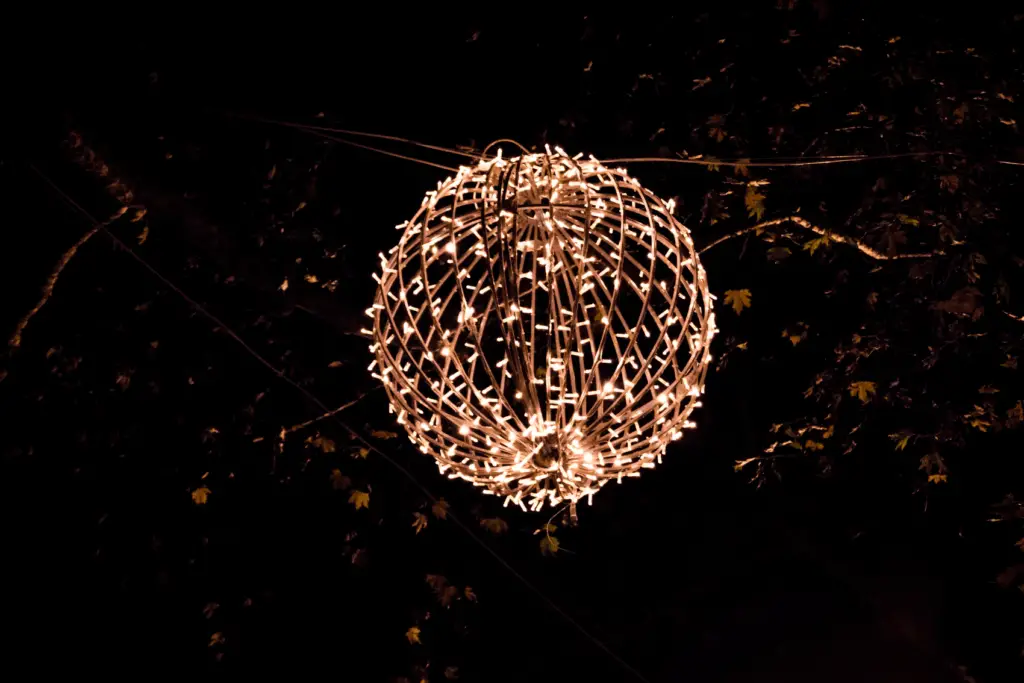
Albania is admired by so many worldwide for its unwavering religious harmony, and the openness citizens have toward celebrating other religious holidays. However, to understand how a country achieved such unity and the unique traditions of celebrating New Years that continue today, it all starts by understanding the history of this small yet complex country.
Experience: Christmas in Albania Tours by City
The History of Religion in Albania
Though most people in Albania today are Muslim, that was not always the case. The country first gained Christianity during apostolic times, the earliest recorded period of Christianity. However, it wasn’t until the 15th century that the majority of the country converted to Islam due to the invasion of the Ottoman Empire (known today as Turkey).
Related Post: A Beginner’s Guide to Albania Independence Day
People converted from Christianity to Islam for various reasons: Forced or willingly converted for survival. However, during the mid-1400s, Albania’s national hero, Gjergj Kastroti Skanderbeg, fought back against the Ottomans. As a Christian, kidnapped as a child and converted to Islam, and then returned to Albania and converted to Catholicism, he received the title “Protector of Christianity.”
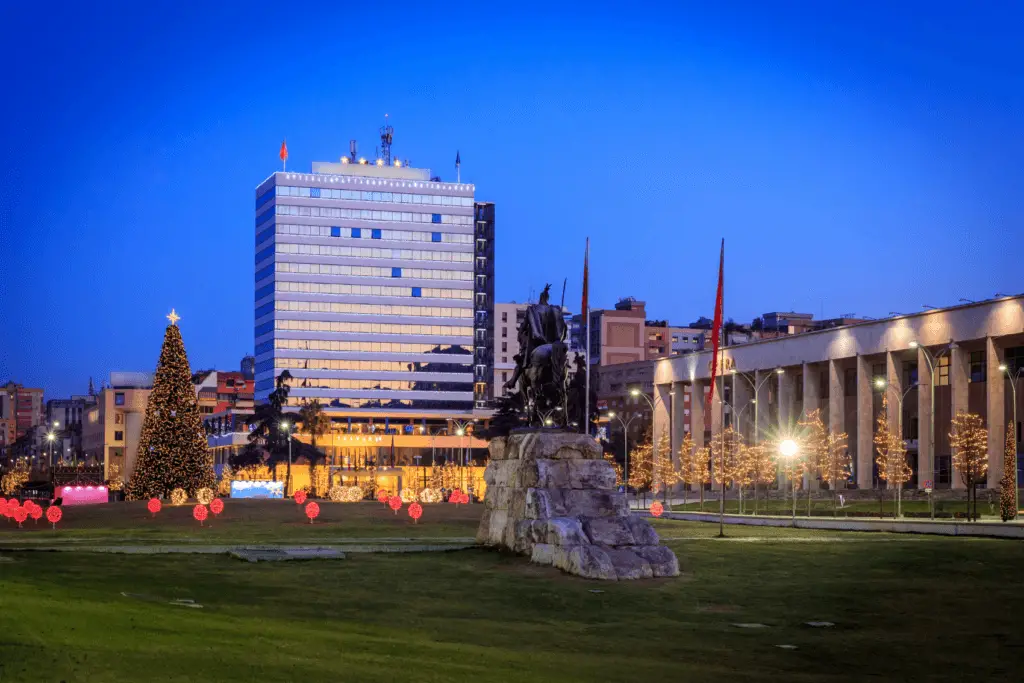
Stay in Skanderbeg Square: Tirana International Hotel
That’s because, under Skanderbeg’s leadership, he was able to consistently push back against the Ottoman Empire, preventing them from invading other regions in Europe. As a result, Skanderbeg was loved and appreciated by leaders throughout Europe, particularly Rome.
However, once Skanderbeg passed away in 1468, the Ottomans soon regained control of Albania, and if people were not Muslim yet, they eventually converted. Nevertheless, some people continued practicing Christianity in secrecy or fled to neighboring regions.
When Albania gained independence from Turkey in 1913 and became an official Albanian state, the majority religion remained Muslim, but people could also openly practice Christianity. In 1945, roughly 68% of the population was Muslim, 19% was Orthodox, and 13% Roman Catholic.
But it was in 1945 when communist dictator, Enver Hoxha, came into power and banned the practice of all religions in Albania. At the time, many viewed religion simultaneously with ethnicity. So Muslims were Turks, Orthodox Christians were Greeks, and Catholics were Latins. However, Albanians didn’t necessarily have the same views, and Hoxha wanted to put the ethnicity of being Albanian above everything else.
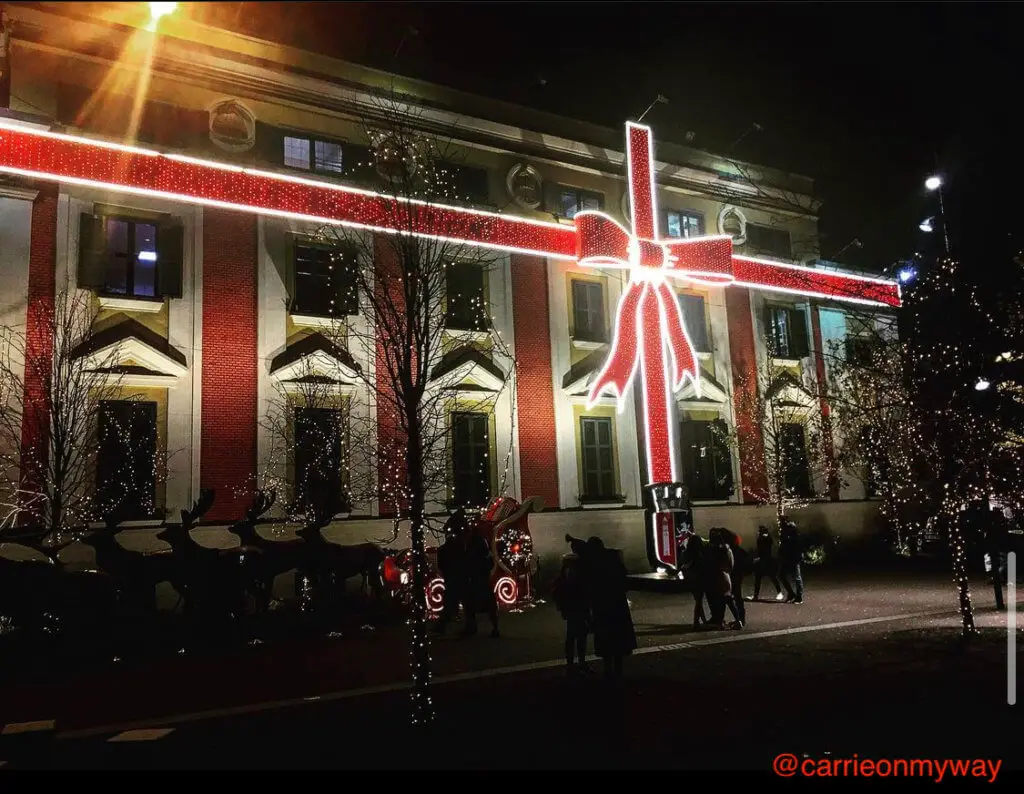
However, the banning of religion did have some brutal outcomes. For 45 years, Albania was cut off from the rest of the world, including connections to the Catholic Church and other religions. Religious books were confiscated, and extreme punishments were enforced for anyone practicing a religion. More than 2,100 churches and mosques were destroyed, and there were even secret police that would arrest religious leaders and execute them. Even Mother Teresa, who is Albanian, was denied entry into the country while Hoxha was the leader because he saw her as a threat and agent of the Vatican.
In 1967, Hoxha declared Albania the first country to be an atheist country, having successfully banned all religions. He stated, “The only religion in Albania is Albanianism.”
Experience: Christmas in Albania Tours by City
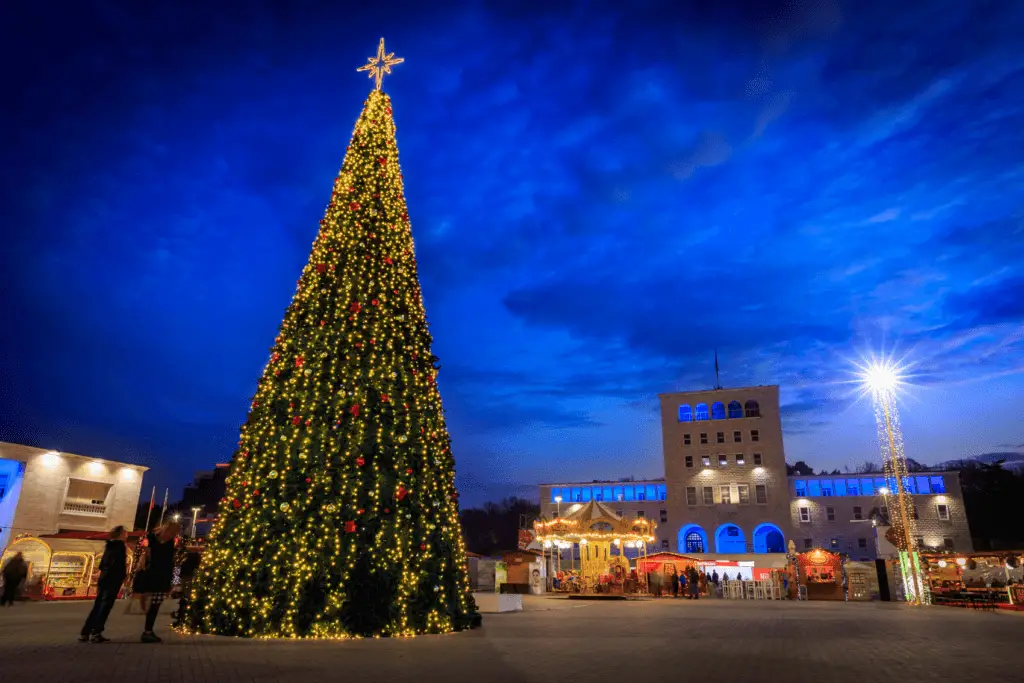
Even though people understood the risk, many continued practicing their faith in secrecy. So when communism fell in 1990 and people were permitted to practice religion once again openly, the faith of families had survived for more than 45 years under communist rule.
But as a result of communism, the breakdown of religion in Albania did shift slightly. Though the data isn’t considered necessarily the most reliable, today, nearly 3 million people live in the country, and the breakdown of religions is estimated to be:
- 59% Muslim
- 24% No religion, non-believers, not declared
- 10% Roman Catholic
- 7% Eastern Orthodox
Religious Harmony Today in Albania
Despite being the only place in the world where religion was once banned, today, Albania is now known as the only country in the world with religious harmony. However, during the 45 communist rule of Hoxha, something interesting did happen. Since religion was outlawed, people were free to marry outside of their faith. As a result, there was an inevitable mix of families regardless of religion or non-faith.
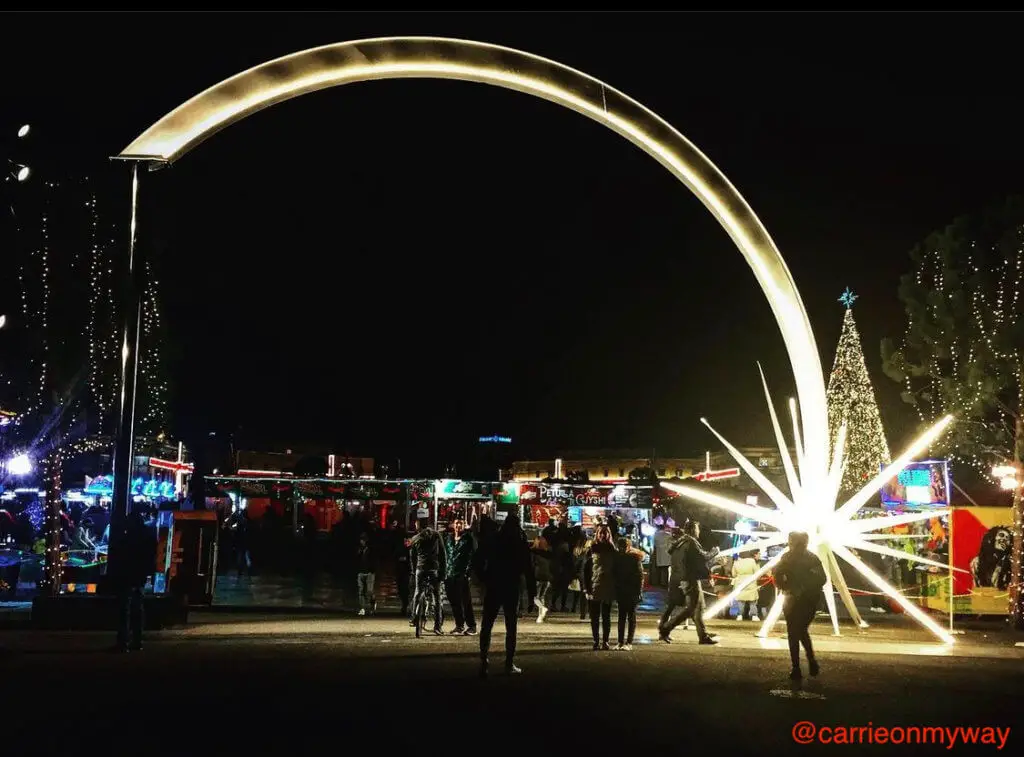
When you walk the streets of Tirana, Korca, or any other city, you will see churches and mosques next to each other. The interfaith of marriages continues today, where someone who is Muslim will marry Roman Catholic, for example. In 2014, Pope Francis’ first visit outside of Rome was to Albania because he praised its religious harmony.
Stay in Skanderbeg Square: Central Modern Apartment
And as a result, whenever there is a religious holiday in the country, it doesn’t matter what you believe or don’t believe. Everyone usually has time off work and is welcome to participate. Many believe that inviting everyone to take time away from work and celebrate another’s religion keeps religious harmony alive in Albania.
Significant Public Holidays in Albania
- Nowruz: Celebrated by the Bektashi Muslims, also known as Persian New Year.
- Easter and Easter Monday: Catholic and Orthodox followers attend services throughout the week leading up to Easter Sunday and Monday.
- Ramadan: It is a holy month of fasting for Muslims.
- Eid al-Fitr: The celebration for Muslims on the last day of Ramadan to break fasting.
- Christmas: Christian holiday celebrating the birth of Jesus Christ.
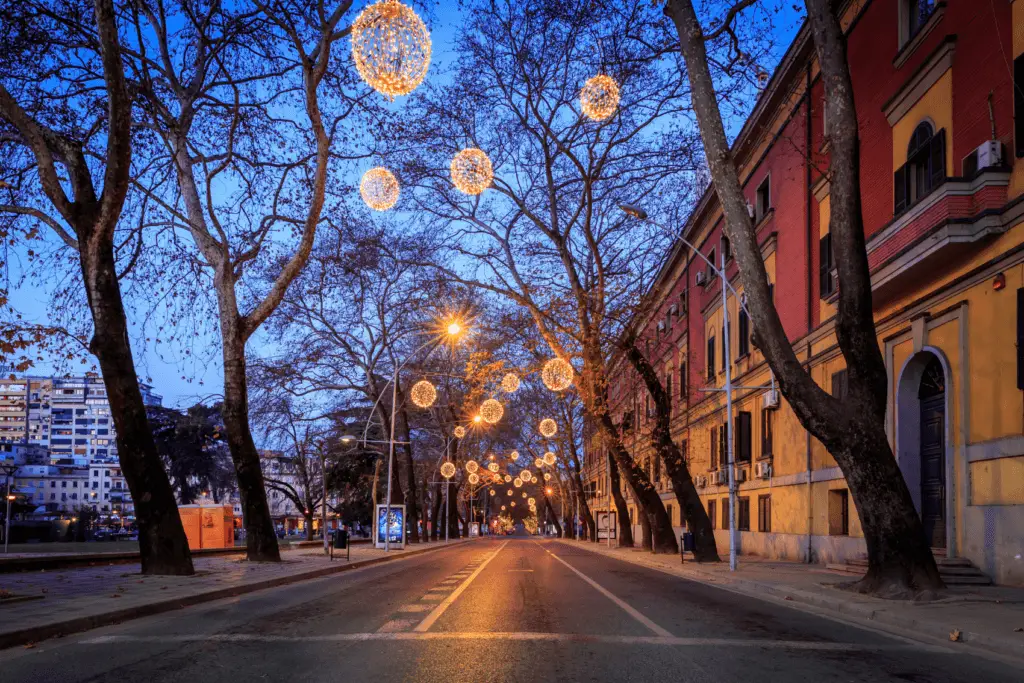
Bigger Than Christmas: Celebrating New Years in Albania
But there is one holiday in Albania that stands out as the biggest and most celebrated, regardless of faith, and that is New Years. While for many countries throughout Europe, Christmas tends to be the highlight of the year, in Albania, the biggest night is having dinner with family on New Year’s Eve.
New Years evolved to be the most celebrated holiday in Albania due to the 45 years under communist rule. Since Hoxha banned religion, New Years was a non-religious holiday that everyone could celebrate.
New Years Traditions, Food, and Decorations
There are some similarities between New Years traditions in Albania and Christmas. For example, there is a New Years tree decorated with ornaments and ribbon, and the Old Man of New Year brings gifts for children and places them under the tree. There are also glittery red, gold, and green decorations such as wreaths and stars that people use to decorate their homes.
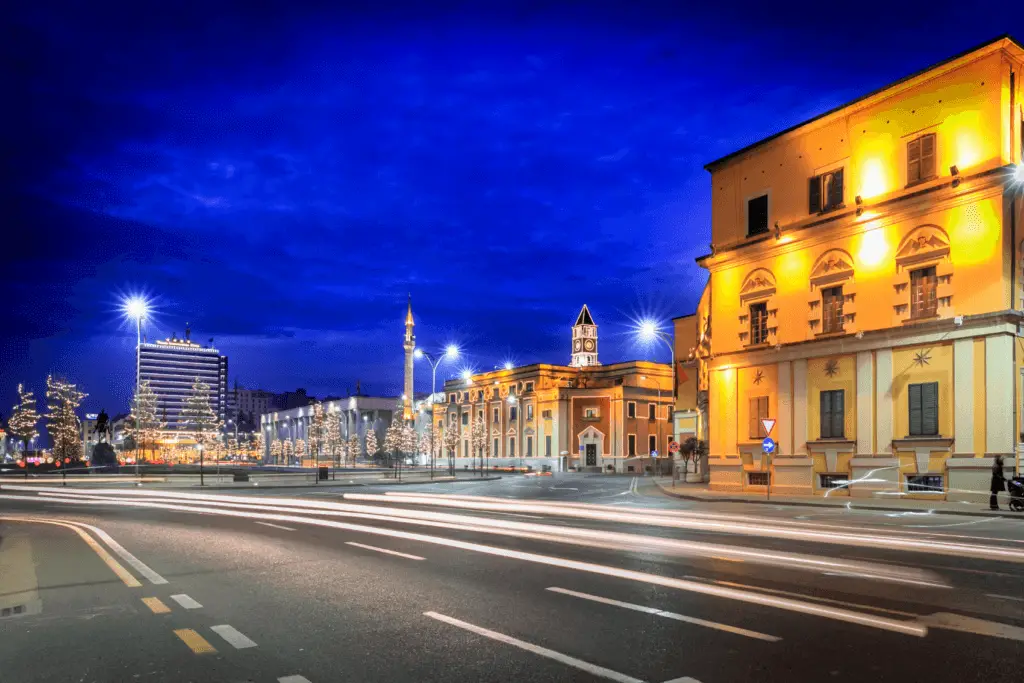
And the cities will decorate the streets and buildings to help ring in the holiday spirit and celebrate New Years. For example, in Tirana, huge lighted displays are set up in Skanderbeg Square, the central plaza in the capital, and on main government buildings. There is also a large New Years tree on display.
A traditional New Year’s Eve dinner in Albania isn’t complete without all of the following:
- Roasted Turkey: Many families have turkey, but many serve grilled beef, lamb, or pork.
- Baklava: Sweet, flaky, crispy, and sticky, baklava is sweet, full of flavor, and the traditional dessert for New Years! Often filled with walnuts or dried fruit, many families prepare their own baklava the day before New Year’s Eve, and the recipe they follow has been passed down from generation to generation.
- Kadaif: Another crispy, sweet dessert made of finely shredded filo dough and infused with walnuts, vanilla, sugar, and lemon.
- Raki: This is the traditional drink in Albania and is consumed at many significant events, celebrations, and day-to-day meals.
Dinner also consists of several toasts throughout the evening. There is a toast at the beginning of dinner and many throughout dinner honoring family members. And, of course, when it hits midnight, there is one big toast to welcome the New Year.
Experience: Christmas in Albania Tours by City
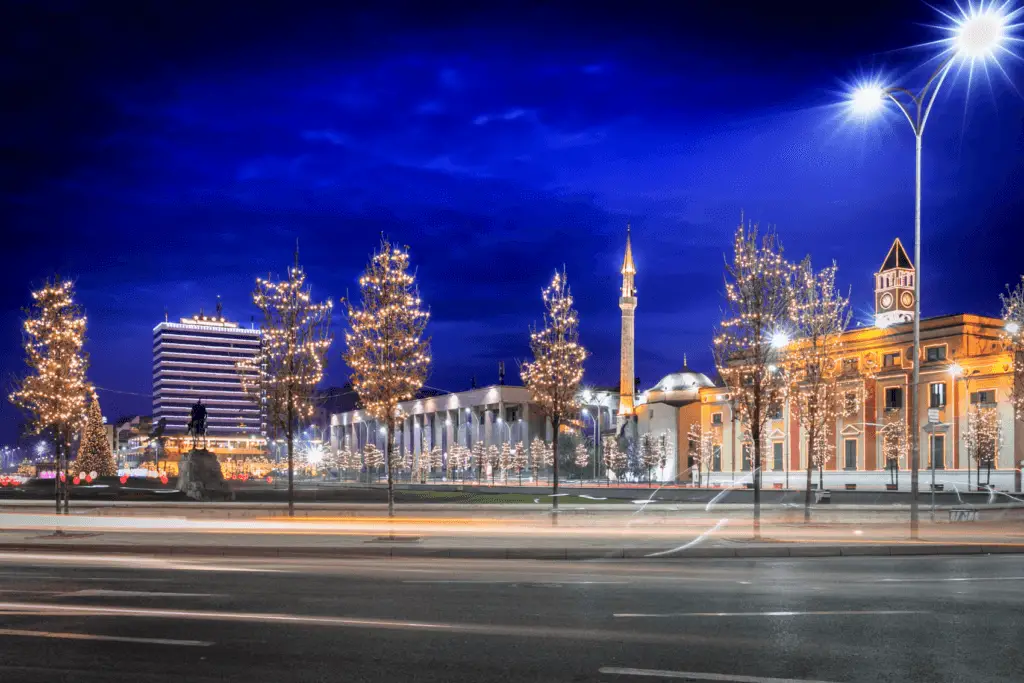
Then on January 1, many Albanians will take the time to visit friends and other relatives to wish everyone a Happy New Year. Usually, if you visit with another family in the morning, later in the afternoon, or the next day that family would then come to your home. No matter who you visit, you’ll be sure to leave stuffed with sweets, fruits, and drinks!
For The Best of Christmas and New Years: Visit Korca
You can celebrate both Christmas and New Years when you visit the city of Korca. Approximately three hours away from Tirana, this city is affectionately known as the “cradle of Albanian culture” and is also home to the biggest Christmas celebration in the country.
Albanians from all over the country will travel to Korca to celebrate Christmas and for the old bazaars and decorated boulevards and streets. Korca is also home to a huge and beautiful Orthodox Cathedral in the city’s center, as many people who live there are Greek Orthodox. The current cathedral was built during the 1990s to replace the one destroyed during communism. Regardless of religion, many will join the midnight mass.
Stay in Korca: Kocibelli Hotel
The people of Korca are known for following Albanian traditions, preparing delicious, traditional Albanian food, and showcasing warm hospitality. So you may decide to stay throughout New Years too!
The Climate in Albania During the Holiday Season
If you’re thinking of ringing in the new year in Albania, you may be wondering what the weather is like for this Mediterranean country in December and early January. During this time of year, the temperatures will stay in the 45-55F range during the day and at night fall to 25-35F.
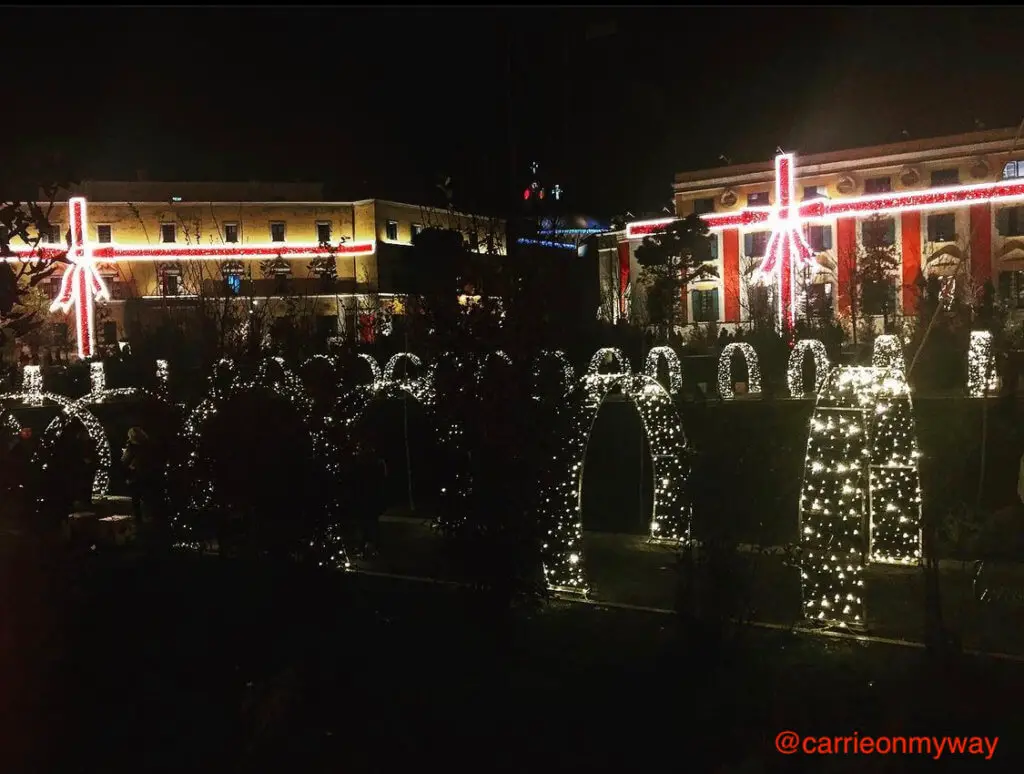
Depending on where you are in the country, you may see snow. For example, the capital of Tirana hardly sees snow, but it’s common to see snow in Korca. But overall, the temperatures are definitely mild during the winter and won’t keep you from exploring and celebrating the holidays outdoors.
****
There would be no better place to celebrate the holiday season than in a country that practices what we all hope for every single year: peace on Earth. Albanians live in religious harmony every day and are known as some of the most hospitable people in the world. So spending the holidays in Albania is the perfect way to renew your soul and count your blessings!
Recent Blog Posts
This post contains affiliate links. At no additional cost to you I may earn a commission if you make a purchase.

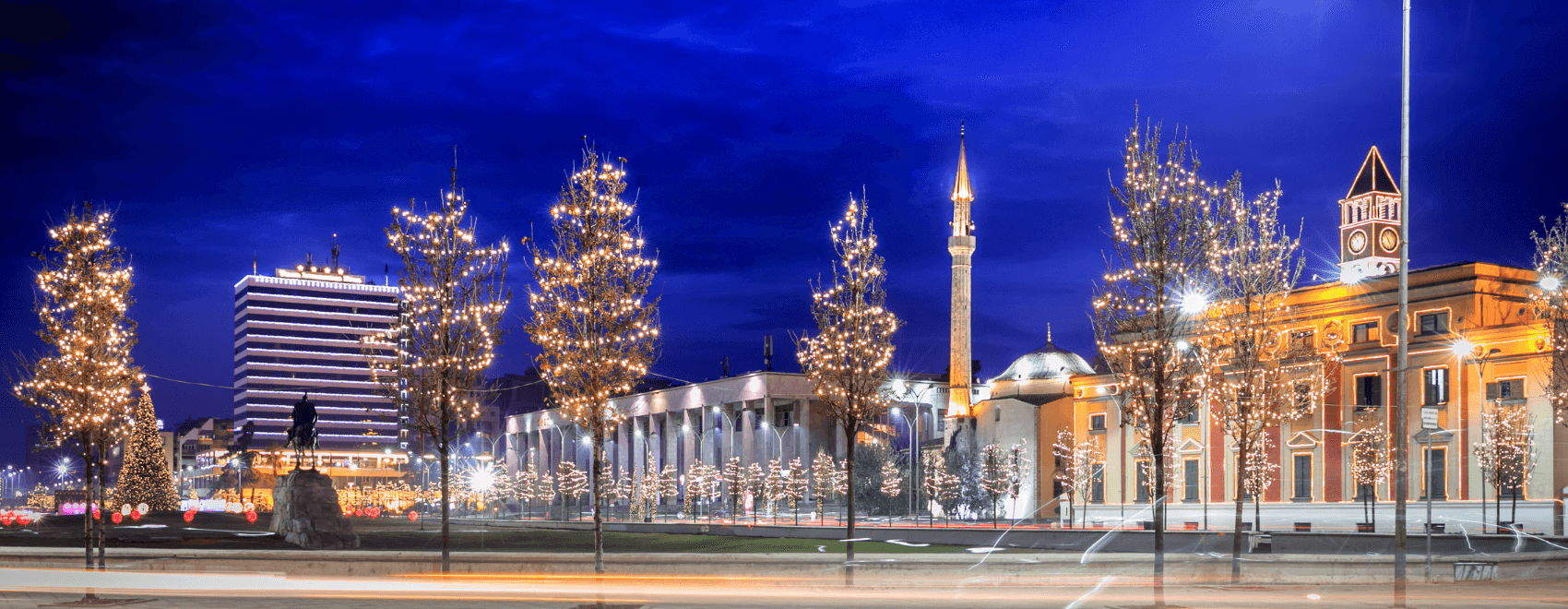
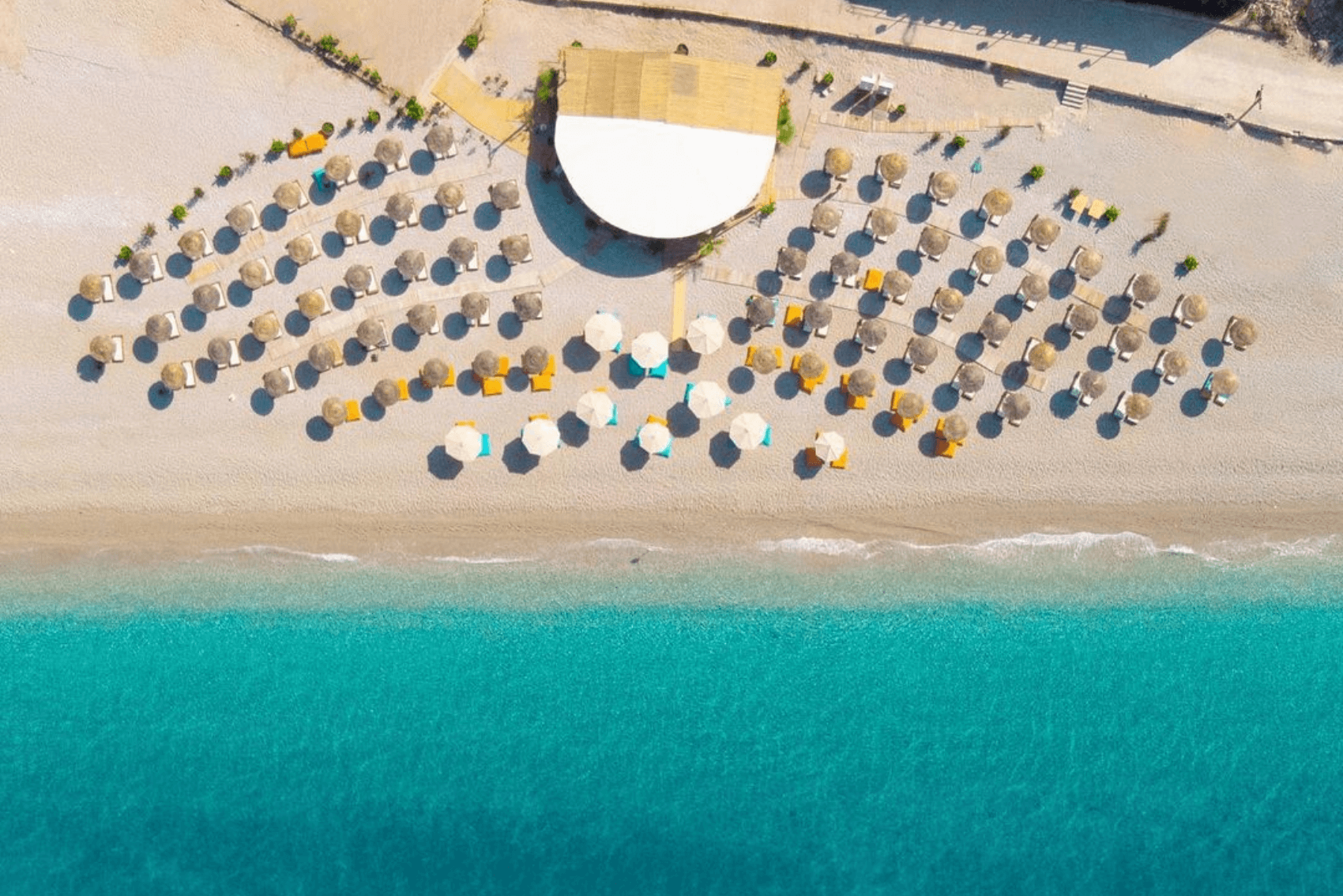
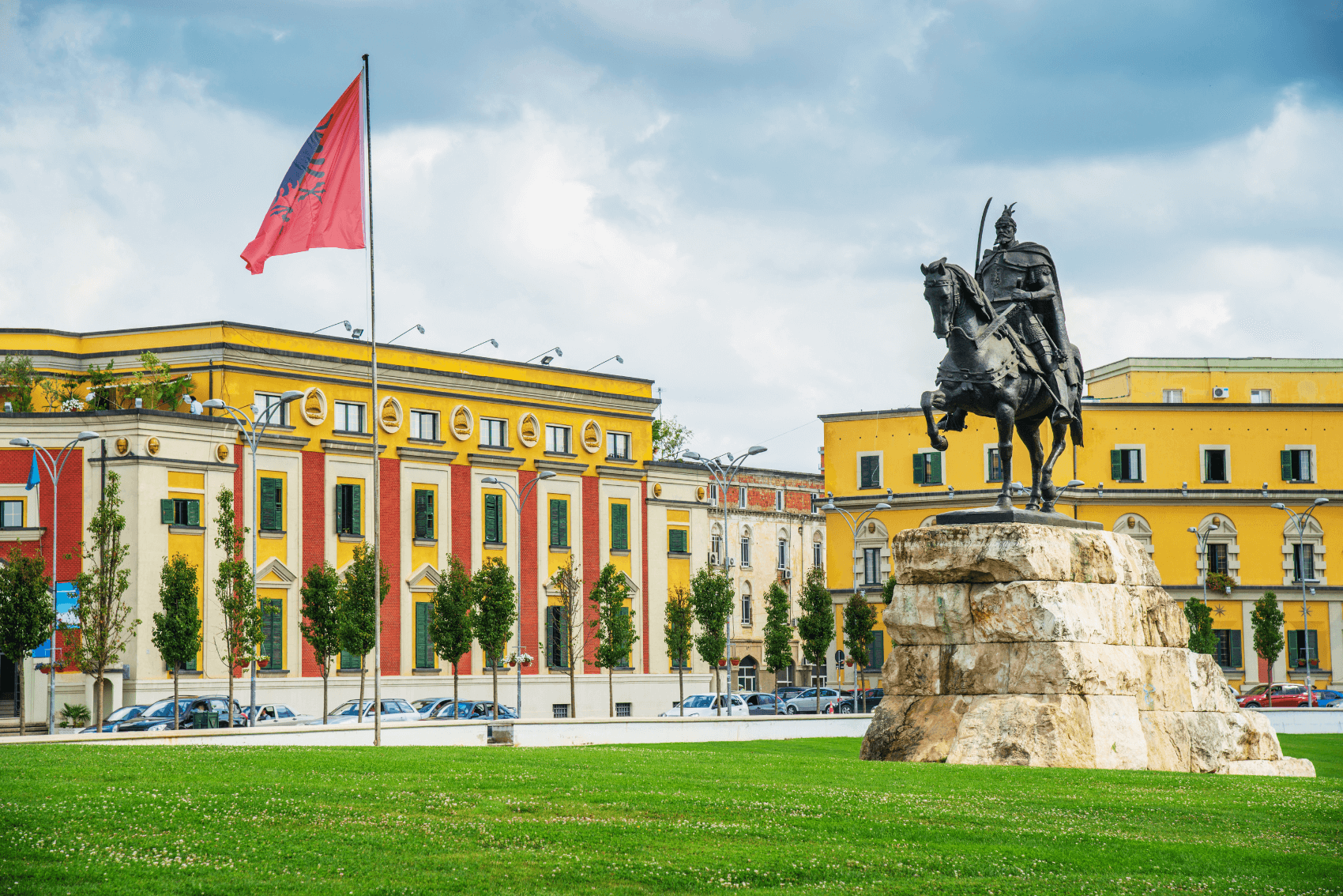
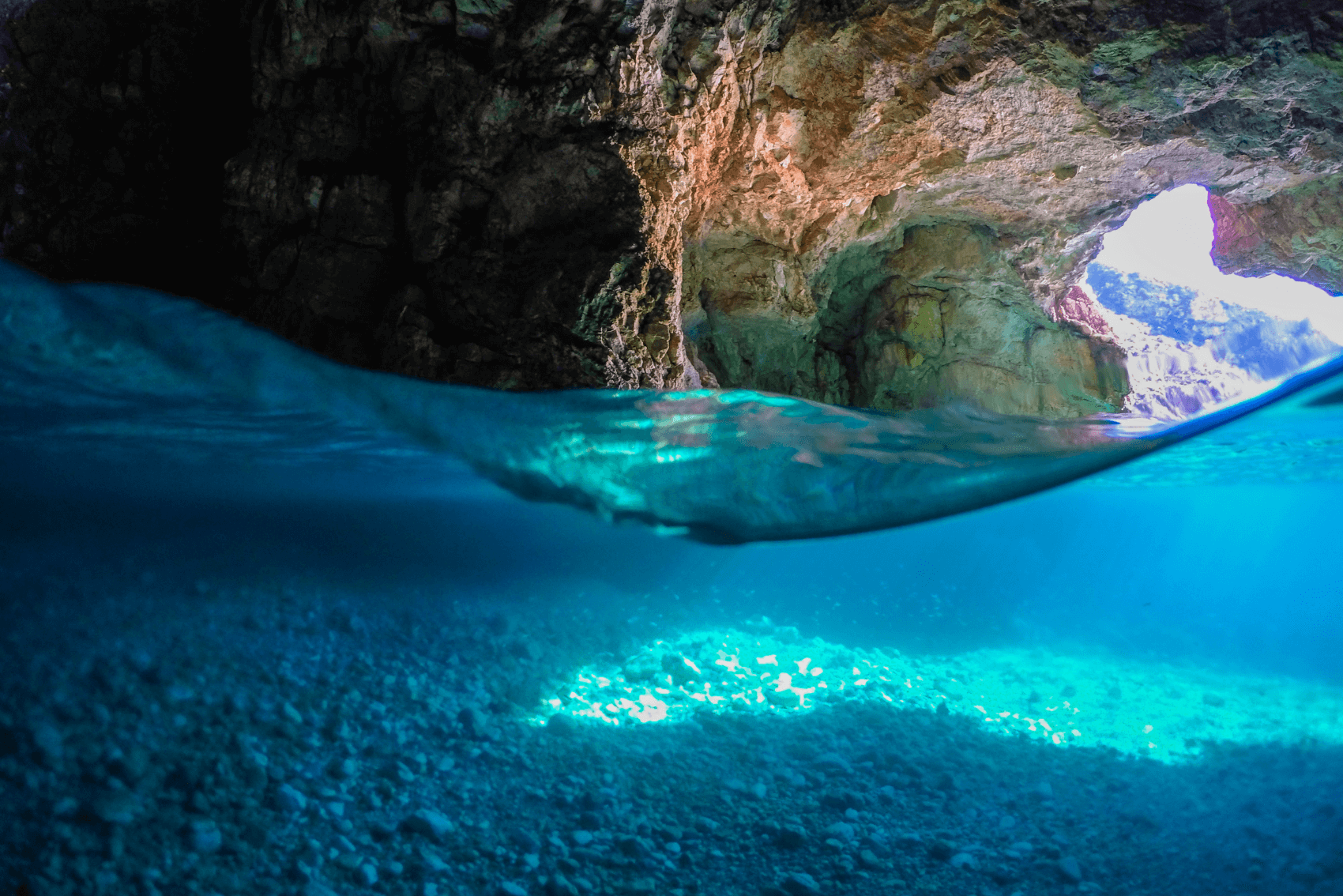
Leave a Reply